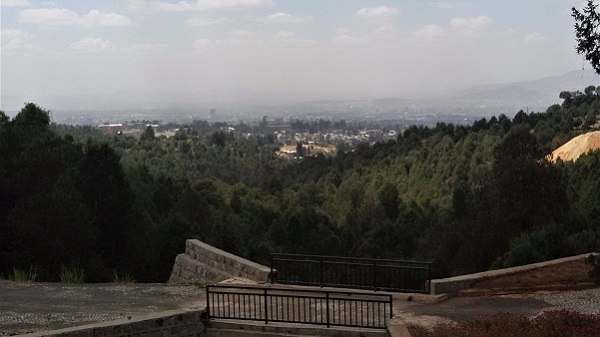
Gullele Botanic Garden, a joint venture of Addis Ababa University, is already working with institutions of higher education including Bahir Dar, Adigrat and Haramaya universities to establish their own botanical gardens.
By Elias Gebreselassie (Mongabay)
ADDIS ABABA, Ethiopia–When Ethiopia’s first botanic garden was established six years ago, few Ethiopians knew of country’s flora heritage.
But with agro-ecological zones ranging from 125 meters below sea level to about 5,000 meters above sea level, the country boasts one of the richest flora heritages in Africa according to Birhanu Belay, research department coordinator at Gullele Botanic Garden (GBG).
The Gullele Botanic Garden is situated on 70 hectares of land along the northwest outskirts of Addis Ababa, a joint venture of Addis Ababa University (AAU) and the city of Addis Ababa. The garden is used for research, education, eco-tourism and conservation currently hosts 780 of the country’s estimated 6,500 plant species.
According to Belay, the primary aim behind establishing the garden was to save plants that have economic value, are endemic, have medicinal value or are endangered.
“Increasing population means expansion of agricultural land and shrinking forest coverage and establishing botanic gardens is one way to fight this challenge,” Belay said. He also noted that preserving native plants has an additional benefit of better soil conservation and health.
Not a replacement for natural vegetation
While Belay says Gullele Botanic Garden aims to be a hub for conservation, research, education and eco-tourism activity, he notes that it’s in no way a replacement for natural vegetation.
“We’re not only engaged in collecting plants from various parts of Ethiopia but also planning to collaborate with higher educational institutions nearby on particular plant vegetation so that its grown and researched in its natural location,” he said.
“The primary objective is to bring these various plants from different parts of the country to grow here and finally introduce back to its natural habitat.”
Gullele Botanic Garden is already working with institutions of higher education including Bahir Dar, Adigrat and Haramaya universities to establish their own botanical gardens.
Read the complete story at Mongabay
——
See also:
